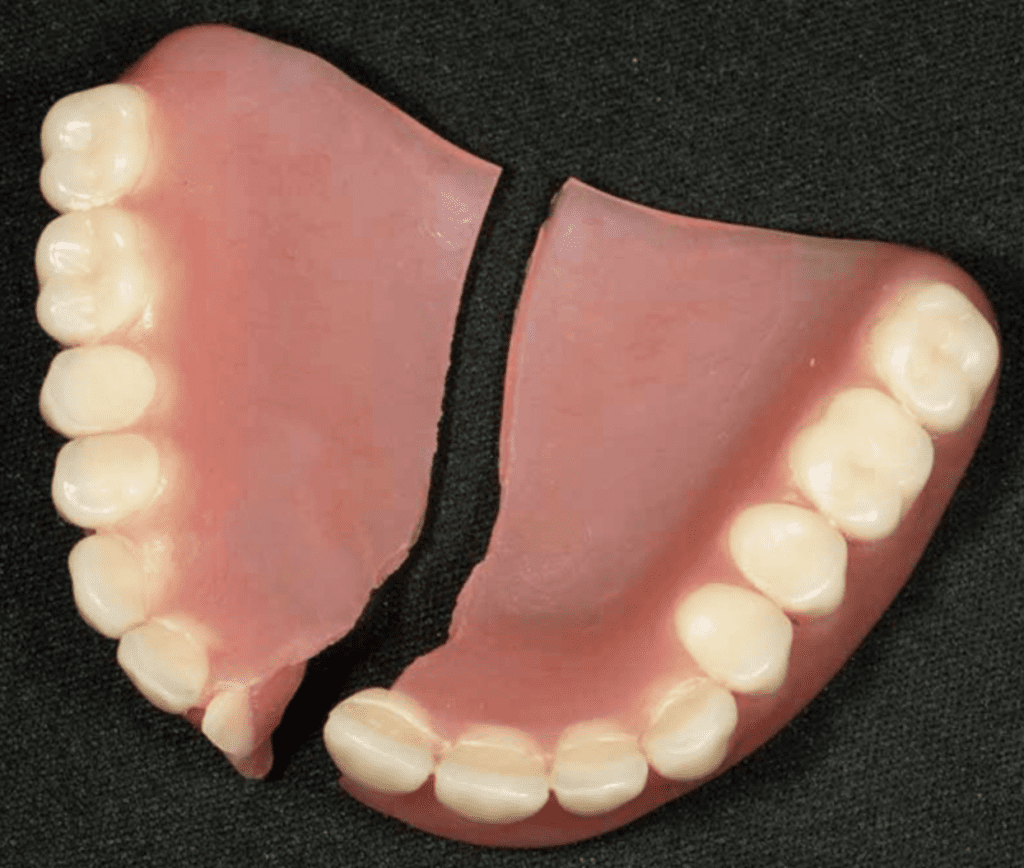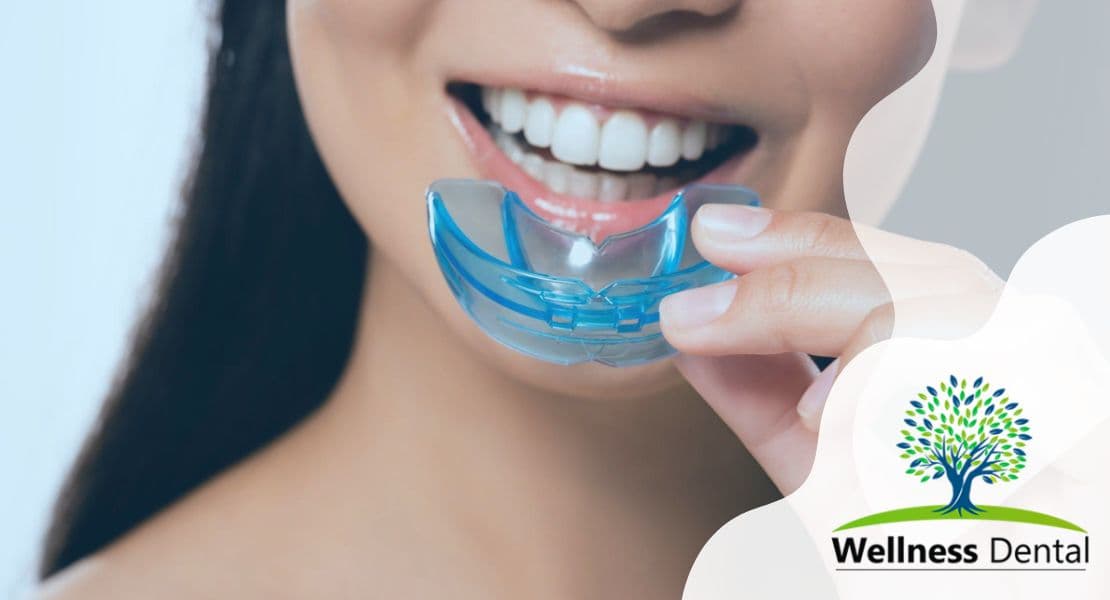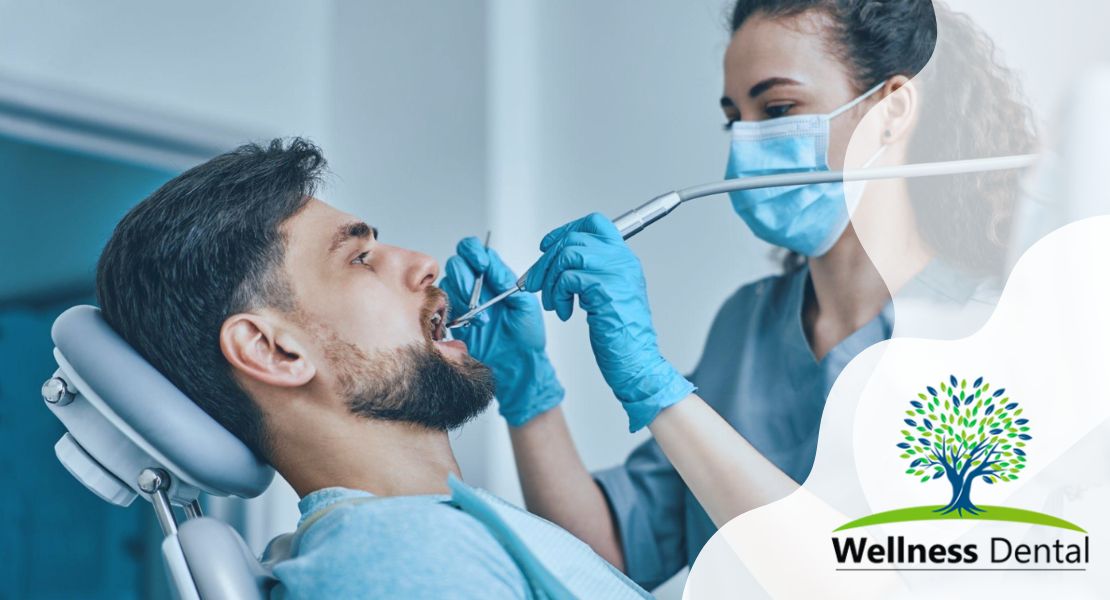The pop of a gum bubble is a sound many cherish, but can it still be a part of life for denture wearers? Dentures, the prosthetic replacements for missing teeth, play a vital role in many individuals’ lives.
Chewing gum with dentures presents unique challenges, from the possible damage to the dentures themselves to the effects on adhesive effectiveness. With dentures in the equation, the characteristics of chewing gum become more than a matter of taste. It’s important to select gum that can accommodate the specific needs of denture wearers.
Understanding Dentures and Gum

For many people, the simple enjoyment of chewing gum can be a question mark once they have dentures. Whether you favor the minty freshness after a meal or like keeping your jaws busy, you may wonder if you can still indulge in this sticky treat.
Dentures are designed to restore the function and appearance of natural teeth, but they come with their own set of considerations, especially when it comes to what you eat and chew. In the context of chewing gums, it’s essential to understand that not all gums are suitable for denture wearers.
Gum producers often manufacture different types of gum, some of which may be more denture-friendly than others. Sticky foods can be problematic, as they may dislodge or stick to dentures. Consequently, selecting the right type of gum is crucial for those with dentures.
What Are Dentures?

Dentures are prosthetic devices constructed to replace missing teeth, and they are supported by the surrounding soft and hard tissues of the oral cavity. Available in various designs, they can be categorized into full dentures, which replace all teeth on either the upper or lower arch, and partial dentures, which only replace some teeth and are typically used when some natural teeth remain.
For those wearing dentures, maintaining oral health is as important as it is for those with their natural teeth. Dentures need to be cleaned regularly and cared for to ensure longevity and comfort.
How Dentures are Attached
Securing dentures properly is critical to their functionality and the comfort of the wearer. Dentures typically stay in place by forming a seal with the gums. In the case of full dentures, they can also be held in position by suction or denture adhesives for additional stability. Partial dentures, on the other hand, are often fixed by clasps or precision attachments that anchor to the remaining natural teeth. Dental implants are another method used to attach both full and partial dentures.
Implants are metal posts surgically placed into the jawbone, where the denture can be snapped or screwed into place, providing a more permanent and secure solution. The method of attachment will largely dictate the types of foods and activities appropriate for denture wearers, including whether or not they can comfortably chew gum.
Potential Challenges and Risks
Chewing gum with dentures presents several potential challenges and risks that wearers should be aware of before indulging in this pastime. The level of risk can depend on the type of gum chosen, the condition and fit of the dentures, and the individual’s ability to chew without causing damage to the dentures or discomfort.
It is essential for denture wearers to consider these aspects to avoid potential complications that could affect both their dental health and the integrity of their dentures.
Risk of Damaging Dentures

Dentures are designed to be durable but are not indestructible. Chewing gum, especially varieties that are particularly sticky, can exert stress on dentures, leading to possible damage. It’s not uncommon for dentures to crack, chip, or even break if they are subjected to undue force or if they catch on a piece of gum.
Clasps on partial dentures might also become loose, potentially leading to an uncomfortable fit or the need for a repair. Considerations for avoiding damage include selecting softer gums designed for denture wearers and ensuring regular check-ups with a dental professional to assess the condition of the dentures.
Difficulty Chewing Sticky Foods
For those with dentures, chewing foods that are sticky can be more than just challenging—it puts extra stress on both the dentures and the gums. Sticky foods have a tendency to cling to the surface of dentures, making them difficult to dislodge.
This may result in an uncomfortable chewing experience and create challenges in cleaning the dentures afterward. Additionally, repeated chewing of sticky substances can lead to weakening of the denture’s structure over time.
The Impact of Gum on Denture Adhesives
Gum can have a detrimental effect on the performance of denture adhesives. When a person chews gum, the constant movement can cause the adhesive to lose its grip, leading to slipping or movement of the dentures. This not only affects comfort but also the ability to speak and eat properly.
Furthermore, gum may mix with the adhesive, reducing its efficacy, and may necessitate frequent reapplication throughout the day. Denture wearers relying on adhesives should be cautious about the type of gum they choose and be prepared for the possible need for additional adhesive application if they choose to chew gum.
| Challenges/Risks | Description | Recommendations |
|---|---|---|
| Damaging Dentures | Hard or sticky gums can damage dentures including cracking, chipping, or loosening of the clasps. | Choose softer gums and ensure regular dental check-ups. |
| Difficulty Chewing | Sticky foods can adhere to dentures, making chewing and cleaning difficult. | Avoid very sticky foods and clean dentures regularly. |
| Impact on Denture Adhesives | Chewing gum can reduce the effectiveness of denture adhesives, leading to discomfort and instability. | Be cautious with gum selection and reapply adhesives as needed. |
In summary, while it is not impossible for denture wearers to enjoy chewing gum, it is vital to proceed with caution and to make informed choices about the type of gum they chew. Consulting with a dental care provider can provide further personalized advice and recommendations.
Choosing the Right Gum for Denture Wearers

When selecting the proper gum as a denture wearer, it is crucial to keep the health of your dentures and your own comfort in mind. Different gums interact with dentures in varied ways, and what might work for one individual may not suit another.
Factors to consider include gum texture, ingredients, and sugar content. Denture wearers should look for gums specifically formulated for use with dentures or those that are recommended by dental health professionals.
Sugar-Free Gum as the Preferred Choice
Sugar-free gum is often recommended for denture wearers due to reduced risk to dental health. Compared to its sugary counterparts, sugar-free gum does not contribute to tooth decay, which is especially important for those with partial dentures as they still have some natural teeth at risk.
Additionally, sugar-free gums tend to be less sticky, thus reducing the likelihood of gum adhering to the dentures. Look for gums with sugar substitutes like xylitol, which can help reduce the build-up of bacteria in the mouth and contribute to better overall oral hygiene.
Gum with Soft Texture for Denture Wearers
Chewing gum with a soft texture is another key consideration for denture wearers. Soft gum places less stress on both the dentures and the jaw, leading to a more comfortable experience. Softer gums are less likely to pull on the denture, reducing the risk of damage or dislodgment.
For those looking for a safe and comfortable option, searching for brands that promote softer chewing experiences or gums designed specifically for denture wearers can provide suitable solutions.
Avoiding Gums with Sticky Ingredients
It’s advisable for denture wearers to avoid gums with sticky ingredients. Such gums can get lodged in the crevices of dentures, leading to a tricky cleaning process. The stickiness also poses a threat to the integrity of the denture’s fit and can cause discomfort during chewing.
Always read the labels to be aware of the gum’s components and steer clear of any product known to be excessively tacky. Seeking recommendations from your dental care provider can help in making a well-informed decision.
| Consideration | Description | Why It Matters |
|---|---|---|
| Sugar Content | Opt for sugar-free gum to prevent tooth decay and lessen adhesion to dentures | Protects any remaining natural teeth and eases cleaning |
| Texture | Seek out soft-textured gum | Reduces the stress on dentures and is more comfortable to chew |
| Ingredients | Avoid gums with sticky ingredients | Prevents complications with denture fit and cleanliness |
Following these simple yet significant tips will ensure a better and safer chewing experience for those with dentures.
Tips for Safely Enjoying Gum with Dentures
To safely enjoy gum with dentures, it’s crucial to be mindful of the type and brand of gum you choose. Opting for sugar-free and non-sticky varieties can prevent sticking issues and minimize oral health concerns. It’s also essential to chew slowly and gently to reduce pressure on the dentures, ensuring they stay securely in place. Patience is key when adjusting to the sensation of chewing with dentures, as it can take time to become comfortable.
Additionally, make sure to remove your dentures and rinse both them and your mouth after chewing to maintain cleanliness.
Consultation with a Dentist
Before incorporating chewing gum into your routine as a denture wearer, consult with your dentist. They can provide personalized advice based on your specific dental situation. A dental professional will assess if gum chewing is appropriate for you and can recommend brands and types of gum that are denture-friendly. They can also offer insights on how to best maintain your dentures while enjoying gum and instructions for what to do if your dentures become dislodged while chewing.
Proper Denture Care Practices
Maintaining your dentures’ integrity involves more than just careful gum selection. It also requires diligent cleaning and proper storage. After enjoying gum, remove and rinse your dentures thoroughly, making sure no gum residue remains. Brush them daily with a soft-bristled brush and a non-abrasive cleaner specifically designed for dentures.
When not in use, soak your dentures in a denture-cleaning solution or water to prevent them from drying out. Regular check-ups with your dentist will ensure your dentures maintain their fit and function, helping you continue to enjoy gum without complications.
Recommendations from Denture Wearers
Learning from the experiences of fellow denture wearers can offer valuable insights into chewing gum with dentures. Community forums, support groups, and conversations with others who share your experience can lead you to tried-and-tested gum brands and types.
Listen to their advice on managing dentures while enjoying gum and consider their techniques for cleaning and denture maintenance. Word-of-mouth recommendations can often guide you to the best products and practices for a positive chewing experience. However, always remember that individual experiences may vary, so it’s crucial to find what works best for you.






